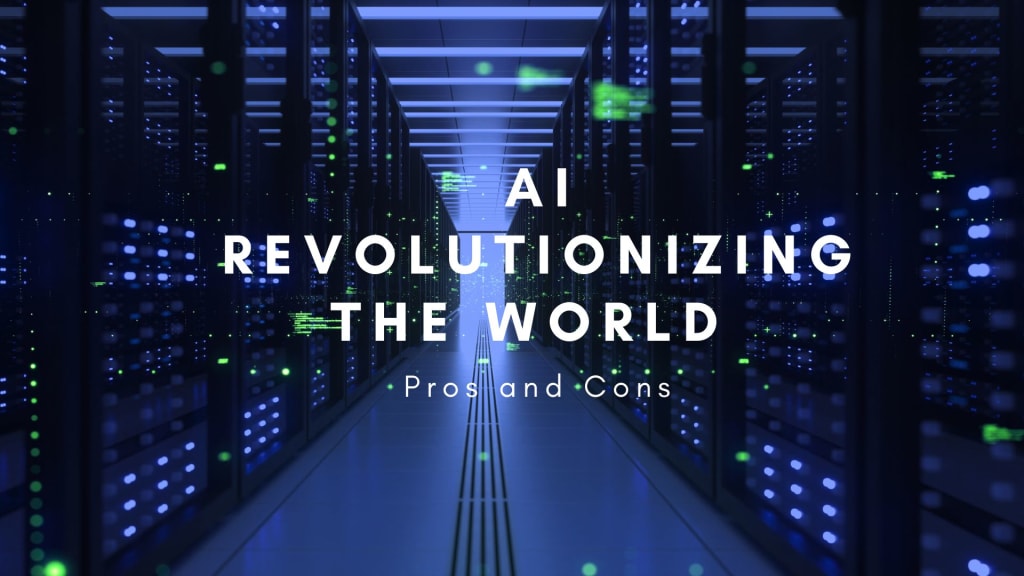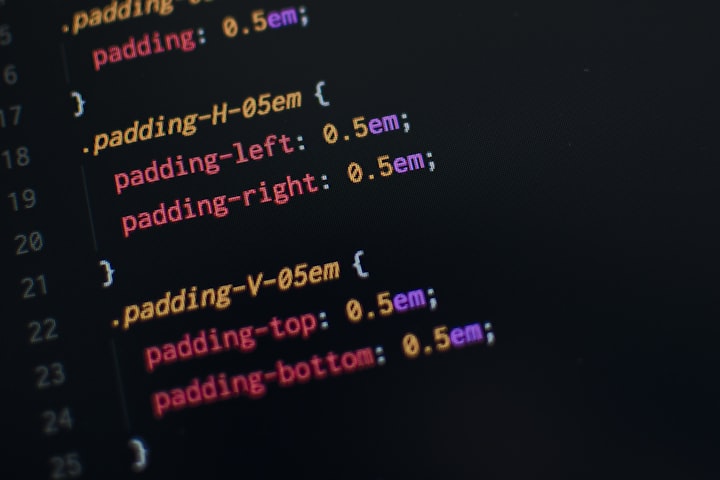AI: Revolutionizing the World - Pros and Cons
"Unveiling the Impact of Artificial Intelligence on our economy, society, daily lives, and the way we interact with technology, work and learn, and make scientific discoveries" Artificial Intelligence (AI) has been advancing rapidly in recent years, and it is expected to play a major role in shaping the future. From simple rule-based systems to sophisticated deep learning models, AI has evolved and revolutionized the way we live and work. In this blog, we will explore the advancements of AI and its potential benefits, as well as the concerns that have been raised about it. We will look at how AI is currently being used in various aspects of our lives and how it is expected to impact our economy, society, and daily lives in the future. We will also examine the ethical and societal implications of this technology and the way it is affecting our way of interacting with technology, working, learning, and making scientific discoveries. As we continue to integrate AI into our daily lives, it's crucial that we consider the impact it may have on our society and economy, and take steps to mitigate any negative consequences.

Artificial Intelligence (AI) has come a long way since its inception in the 1950s. From simple rule-based systems to sophisticated deep learning models, AI has evolved and revolutionized the way we live and work. In this blog post, we will discuss the evolution and revolution of AI, how it was invented, and how it is poised to shape the future of the world.
The history of AI can be traced back to the 1950s, when researchers first began to explore the idea of creating machines that could mimic human intelligence. The earliest AI systems were based on simple rule-based systems that could perform basic tasks such as playing chess or solving mathematical equations. However, these systems had limitations and were not capable of true intelligence.
The next major step in the evolution of AI came with the development of expert systems in the 1970s and 1980s. These systems were designed to mimic the decision-making processes of experts in specific fields, such as medicine or engineering. They relied on a large database of knowledge and a set of rules to make decisions.
The 1990s saw the rise of machine learning, a subfield of AI that focuses on the development of algorithms that can learn from data. This marked a significant step forward in the development of AI, as it allowed machines to improve their performance over time without the need for explicit programming. The advent of machine learning opened the doors to a wide range of applications, such as image and speech recognition, natural language processing, and self-driving cars.
In recent years, there has been a revolution in AI, driven by the development of deep learning. Deep learning is a form of machine learning that uses neural networks, which are inspired by the structure and function of the human brain. These networks are composed of multiple layers, each of which performs a different task, such as recognizing patterns in data. Deep learning has led to significant improvements in a wide range of applications, such as image and speech recognition, natural language processing, and self-driving cars.
The future of AI looks bright, with many experts predicting that it will play a major role in shaping the world in the years to come. One of the most significant ways in which AI is poised to change the world is through its impact on the economy. AI-powered automation is expected to lead to significant job losses in certain industries, such as manufacturing and transportation. However, it is also expected to create new jobs in areas such as data analysis and AI development.
Another way in which AI is poised to change the world is through its impact on healthcare. AI-powered systems are already being used in a wide range of medical applications, such as diagnosing diseases and developing personalized treatment plans. In the future, it is expected that AI will play an even bigger role in healthcare, with the potential to revolutionize the way we diagnose and treat diseases.
AI is also poised to change the way we live our daily lives. For example, AI-powered virtual assistants are already being used to help with tasks such as scheduling appointments and ordering groceries. In the future, it is expected that AI will play an even bigger role in our daily lives, with the potential to automate a wide range of tasks and make our lives more convenient.
Currently, AI is already being used in a wide range of areas that impact our daily lives. For example:
- Smart speakers and virtual assistants, such as Amazon's Alexa and Google Home, are becoming increasingly popular and are being used for a variety of tasks, such as playing music, setting reminders, and providing information.
- AI-powered chatbots are being used by businesses to provide customer service and support.
- AI-powered financial services, such as robo-advisors, are being used to provide investment advice and manage portfolios.
- AI-powered systems are being used in transportation, such as self-driving cars and drones, to improve safety and efficiency.
- AI-powered systems are being used in the retail industry, such as in e-commerce, to personalize shopping experiences and improve supply chain management.
- AI-powered systems are being used in the manufacturing industry, such as in robotic process automation, to improve efficiency and productivity.
- As these examples show, AI is already being used in a wide range of areas that impact our daily lives, and this is expected to increase in the future.
- As AI continues to advance, it also has the potential to change the way we interact with technology. For example, AI-powered systems such as computer vision and natural language processing, are making it possible for machines to understand and respond to human emotions, gestures, and speech. This has the potential to revolutionize the way we interact with technology, making it more natural and intuitive.
Moreover, AI also has the potential to change the way we work and learn. For instance, AI-powered systems are being used in education to personalize learning experiences and provide real-time feedback. In the future, it is expected that AI will play an even bigger role in education, with the potential to revolutionize the way we learn and acquire new skills.
Furthermore, AI also has the potential to change the way we do research and make scientific discoveries. For example, AI-powered systems are being used in fields such as drug discovery and genomics to analyze large amounts of data and identify new patterns and insights. In the future, it is expected that AI will play an even bigger role in scientific research, with the potential to accelerate the pace of scientific discovery.
AI has the potential to bring about many benefits, but it also has the potential to raise a number of concerns. Some of the potential benefits of AI include:
Increased efficiency and productivity: AI-powered systems can automate repetitive tasks, freeing up human workers to focus on more complex and creative tasks. This can lead to increased efficiency and productivity, and can also result in cost savings.
Improved decision-making: AI-powered systems can analyze large amounts of data and identify patterns and insights that humans may not be able to detect. This can lead to better decision-making and can also help to identify new opportunities.
Enhanced safety and security: AI-powered systems can be used in a variety of applications, such as self-driving cars and drones, to improve safety and security. This can help to reduce the number of accidents caused by human error and can also help to protect people from crime and terrorism.
However, there are also some potential downsides to AI, including:
Job loss: Automation has the potential to lead to job loss, particularly for those working in repetitive or low-skilled jobs. This may lead to increased unemployment and economic inequality.
Bias: AI-powered systems can perpetuate bias and discrimination if they are trained on biased data or if they are designed to make decisions based on certain characteristics.
Lack of accountability: AI-powered systems may make decisions that have negative consequences, but it can be difficult to hold anyone accountable for those decisions.
Privacy and security: AI-powered systems can collect and store large amounts of personal data, which can raise concerns about privacy and security.
In conclusion, AI has the potential to bring about many benefits, such as increased efficiency and productivity, improved decision-making, and enhanced safety and security. However, it also has the potential to raise a number of concerns, such as job loss, bias, lack of accountability and privacy and security. As we continue to develop and deploy AI, it is important that we consider these potential downsides and take steps to mitigate them. Additionally, it's crucial that we consider the ethical and societal implications of this technology, and ensure that its benefits are distributed fairly and equitably. Furthermore, it's important to keep in mind that AI is still a developing technology, and it's important to stay informed about its advancements and potential impact on our society and economy.
About the Creator
Ramalingam
I'm interested in social, sports, tech, & food. I enjoy sharing my insights on latest trends & happenings. My blog features a mix of informative articles & personal musings. Thanks for reading!






Comments
There are no comments for this story
Be the first to respond and start the conversation.